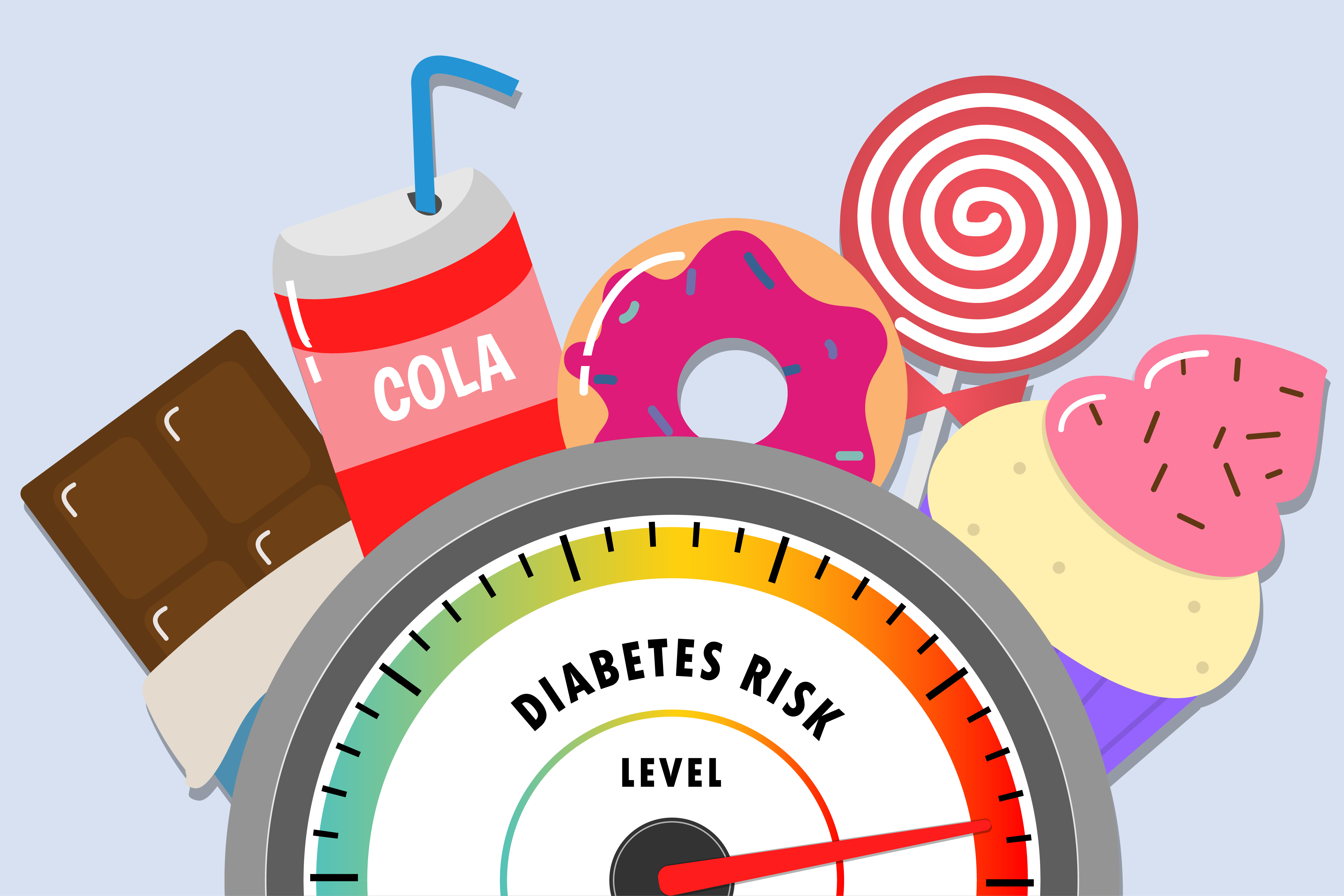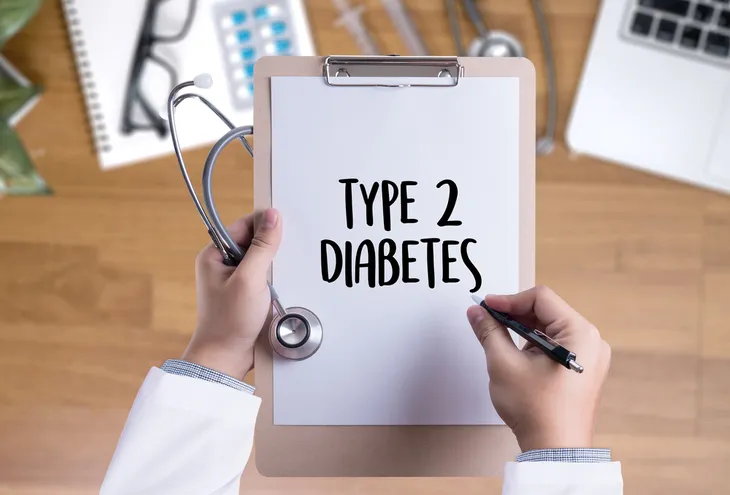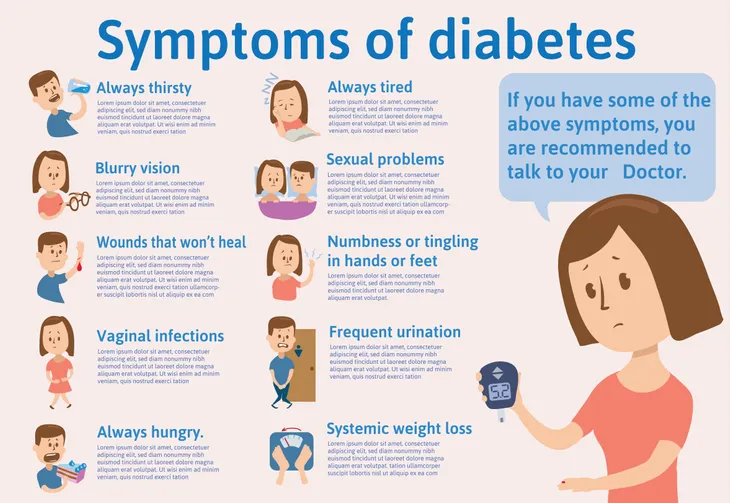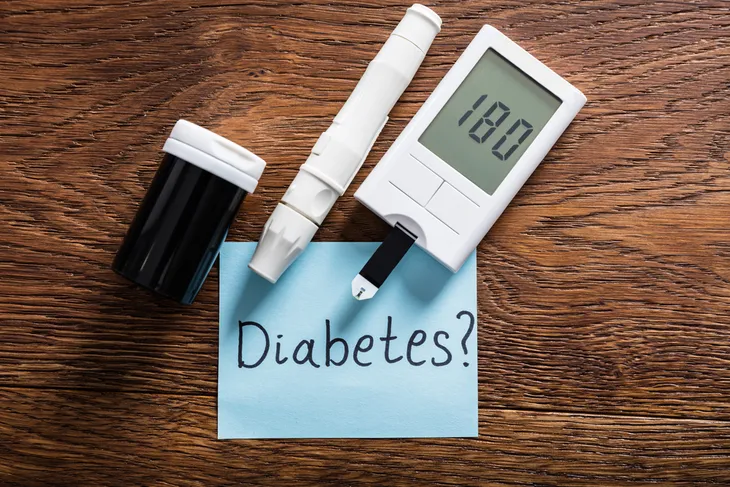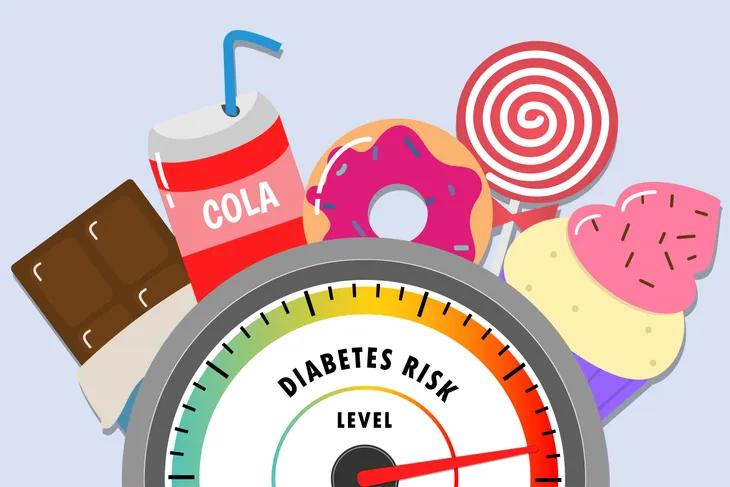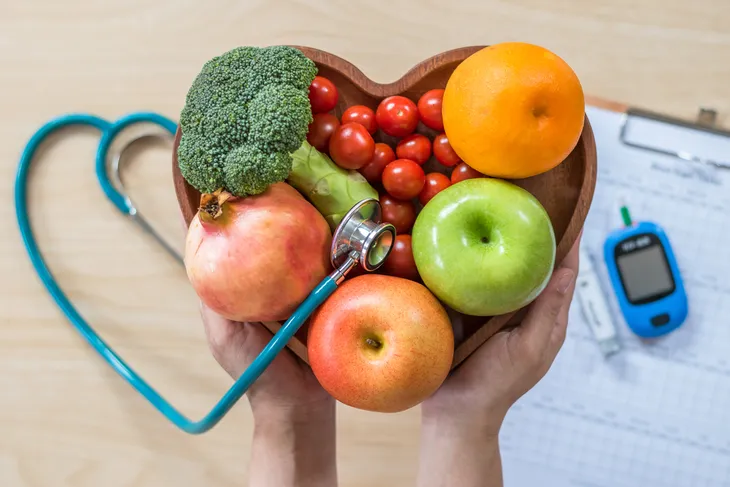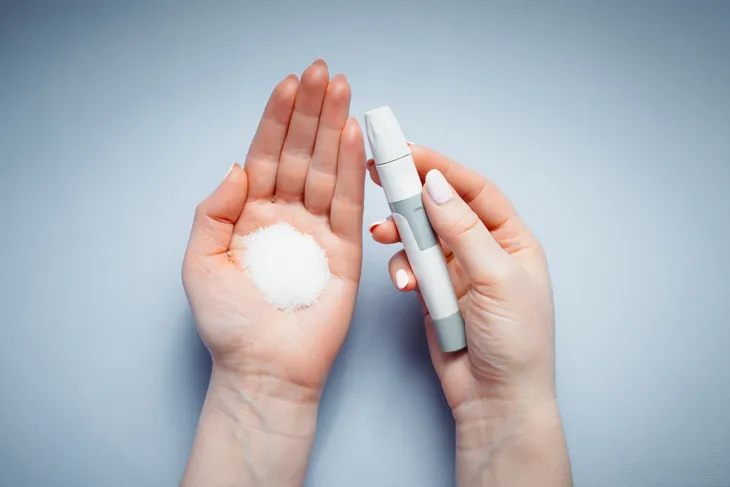Type 2 diabetes is a gruelling health condition to manage. People who suffer from this condition have to constantly keep tabs on their blood sugar, prepare a healthy diet, read each and every food label, try to squeeze in daily exercise, and in some cases require daily medication. Add in an overload of contradictory advice, and you may not be able to differentiate fact from fiction.
Because this condition is so common and can be quite serious, there are a lot of myths and misconceptions circling around about type 2 diabetes. Interested in finding out the truth? We’ve compiled a list of all the popular myths and uncovered what the truth is behind them.
Want diabetes content delivered straight to your inbox? Sign up for our Diabetes newsletter and receive exclusive news and articles written from our team of diabetes experts.
Diabetes Isn’t That Serious
There is a common misconception that diabetes isn’t all that serious and it might stem from the fact that we don’t often hear about people passing away from this condition, or maybe it’s because it’s so common that we’ve become desensitized by it. Either way, the factual answer is that diabetes is a serious condition. In fact, the American Diabetes Association writes, “diabetes causes more deaths per year than breast cancer and AIDS combined, and having diabetes nearly doubles your chance of having a heart attack.” Thankfully, diabetes can also be a somewhat manageable condition by adopting healthier lifestyle choices with exercise and diet.
Only Overweight People Have Diabetes
It’s true, being overweight is a big risk factor for diabetes, but there are many cases where someone who is a normal weight or only moderately overweight develops type 2 diabetes. More commonly, diabetes is caused by other factors like a family history of diabetes, high blood pressure, or a sedentary lifestyle, says Healthline.
Ethnicity can also play a big role says Sarfraz Zaidi, MD, endocrinologist at Los Robles Hospital in Thousand Oaks, California when talking to Health.com. For example populations like African Americans, Native Americans, Asians, and Hispanics/Latinos tend to be at a higher risk for developing type 2 diabetes.
The Symptoms are Easy to Spot
People often believe that if they have diabetes, they’ll know. This isn’t necessarily the case. According to Health.com, 28-percent of people who have type 2 diabetes don’t even realize it. “While the symptoms of type 1 and type 2 diabetes are very similar — increased urination and thirst, fatigue, blurred vision, among others — type 1 symptoms tend to have a dramatic and abrupt onset (usually in children and adolescents, but sometimes adults), while type 2 comes on much more slowly,” writes Health.com.
The source talked to Sarfraz Zaidi, MD, who said that many people go on for years before they realize they have type 2 diabetes. “Your blood sugar may be mildly elevated in the early stages of the disease but you wouldn’t know it without a blood test,” he says. Even a mild elevation in blood pressure can be dangerous as it puts a person at risk for all kinds of heart problems, including heart attacks.
People with Diabetes are Prone to the Cold and Flu
This myth probably stems from the fact that people with diabetes need to be more careful when it comes to getting the flu, but in no way are they more prone to developing a cold or flu than the average person.
Each year people with diabetes are strongly encouraged to get their flu shot (as are others), but the American Diabetes Association explains that this is because the flu “can make diabetes more difficult to control, and people with diabetes who get the flu are more likely than others to go on to develop serious complications.”
Too Many Treats Causes Type 2 Diabetes
Eating sugar does not cause diabetes. This misconception is similar to the one that assumes only overweight people have diabetes. Before we dive into explaining this one we first must explain the difference between type 1 and 2 diabetes. Type 1 diabetes is caused by genetics “and unknown factors that trigger the onset of the disease,” writes the American Diabetes Association. Type 2 diabetes on the other hand is caused by genetics and lifestyle factors, including weight gain and lack of physical exercise. Therefore, sugar alone isn’t the cause, but eating a diet high in calories and sugar can lead to weight gain which is one of the big risk factors for type 2 diabetes.
People with Diabetes Can’t Eat Dessert
Not at all true, especially when you consider that small amounts of sugar can help raise blood glucose levels if low. Really, it’s the amount of food that trumps the type, so eat smart by reading food labels and practice portion control. The American Diabetes Association points out that treats and dessert is no more “off-limits” to people with diabetes than it is to anyone else. The key is moderation and portion control. People with diabetes should only be indulging in sweets on special occasions and be more focused on eating healthy, nutritious foods.
Healthline warns to stay away from highly sugared drinks and desserts because when they are digested they cause a quick spike in blood sugar and when eaten in large quantities, sweets can be harmful to blood sugar levels, as well.
Sugar-Free Means Safe to Eat
Just because a bag of processed treats lists the product as “sugar-free,” it doesn’t mean they are low calorie, low fat, low carbohydrate, or even remotely good for you. People with diabetes shouldn’t only be concerned about sugar intake. They should also be wary of their weight (as with everyone else).
To limit unwanted weight gain, people with diabetes should avoid binge eating or eating a lot of empty calories and carbs which is typically what highly processed foods are made of, despite whether they are “sugar-free” or not.
Fruit is Healthy, so It’s Okay to Eat
Every person should be eating a healthy amount of fruits and vegetables, but for people with diabetes, it’s important to note that “because fruits contain carbohydrates, they do raise blood glucose,” says the American Diabetes Association. This by no means indicates that fruit should be taken off the table entirely because there are still many, many healthy benefits that we can all reap from fruit (even diabetics).
For example, fruit contains lots of fiber, vitamins and minerals. What we mean is to be wary about how much fruit you are eating and that a diabetic should talk to a doctor about what fruits are best for them because some are better than others.
People with Diabetes Who Use Shots Aren’t Taking Care of Themselves Properly
There are many people with diabetes who have to use medicated shots in order to maintain their blood glucose levels, and while some people might wrongly perceive this as a bad thing, it’s really not. The American Diabetes Association explains that type 2 diabetes is a progressive disease so when a person is first diagnosed their blood glucose levels might be easily managed with lifestyle changes like meal planning, physical activity and some oral medication.
Over time, their condition can get worse at no fault of their own. “The body gradually produces less and less of its own [hormone that regulates blood glucose], and eventually oral medications may not be enough to keep blood glucose levels in a healthy range,” writes the source.
Exercise Can’t Prevent Type 2 Diabetes
Even though we already said that type 2 diabetes isn’t always caused by weight, it can be caused by a sedentary lifestyle and there have been times when someone is in what’s known as “prediabetes” and they were able to reverse their condition by changing their lifestyle.
There is a reason that exercise is one of the best forms of treatment for type 2 diabetes. “Exercise burns glucose and makes the cells more sensitive to [the hormone that regulates blood sugar levels],” says Gerald Bernstein, MD, an endocrinologist and the director of the diabetes management program at Beth Israel Medical Center in New York City when talking to Health.com.
In fact, some studies have even shown that exercise can be more effective than medication. Health.com cites a study published in the New England Journal of Medicine that gave people with prediabetes either a placebo drug, the drug metformin, or a prescription of a specified exercise routine consisting of 150-minutes of exercise each week. “After about three years, the lifestyle interventions reduced diabetes incidence by 58-percent, while the drug reduced it just 31-percent, as compared to the placebo,” writes Health.com.
You Can Catch Diabetes From Somebody Else
This has got to be one of the most far fetched myths out there! The answer to this is NO, you cannot “catch” diabetes from someone else. While it’s true researchers still don’t fully understand why some people develop diabetes and others don’t, one thing we do know for sure is that it’s not contagious. It doesn’t spread like a virus in the way that the cold or flu does. There is definitely a genetic factor behind it, particularly for type 2 diabetes, says the American Diabetes Association.
Eat Sugar When Blood Sugar is Low
The worst thing that you can do when you feel a blood glucose crash (or hypoglycemia) is shove a chocolate bar into your mouth. Sugar may temporarily curb the dizziness, shaking, energy drain, and anxiety that comes with it, but a spike in your blood glucose can cause other problems. Instead, try a small amount in a 4-ounce juice box, or a single hard candy to quickly stabilize blood glucose without the excess calories.
People with Diabetes Need to Snack Between Meals
Thanks to today’s medication options, people with diabetes no longer need to snack between meals when they’re not hungry in order to prevent blood glucose from dropping too low. When you do feel like you need a snack, focus on healthy bites between meals to stay slim.
Talk to your dietitian to best determine if snacking between meals should be helpful as each person’s lifestyle is different and require different nutrients, says Julie Ching, registered dietitian and certified diabetes educator.
You Have to Give Yourself Shots
As we’ve already pointed out there are other forms of treatment for diabetes, including lifestyle changes like exercise and meal planning. There is also oral medication available for some people with diabetes. Those who do have to take shots will typically only require about one a day without any pills. “Type 2 diabetes rarely requires […] shots,” says Joel Zonszein, MD, director of the clinical diabetes center at Montefiore Medical Center in the Bronx, New York to Health.com.
The best way to manage diabetes is through stress reduction, diet, exercise and oral medication, explains Health.com. “Stress increases blood sugar levels substantially,” says Zonszein.
I’ll Know When My Blood Sugar is High
Anyone who is familiar with diabetes and blood sugar levels will know that there are symptoms associated with both high blood sugar and low blood sugar. Health.com notes that high blood sugar causes dry mouth, increased thirst and urination, fatigue, and blurred vision, while low blood sugar causes shakiness, sweating, irritability, dizziness and lack of coordination. As a result, most people probably assume they would be able to tell when their blood sugar is out of whack, but that’s not necessarily the case.
People with diabetes can become slightly immune to these symptoms as they “adjust” to their condition and can never know their levels without actually checking them, says David Kerr, MD, director of research and development at William Sansum Diabetes Center in Santa Barbara, California, when talking to Health.com. “The brain can adjust to high and low blood sugars, and rarely can a person ‘feel’ when their sugar’s low or high. It requires a blood test to know for sure,” he says.
